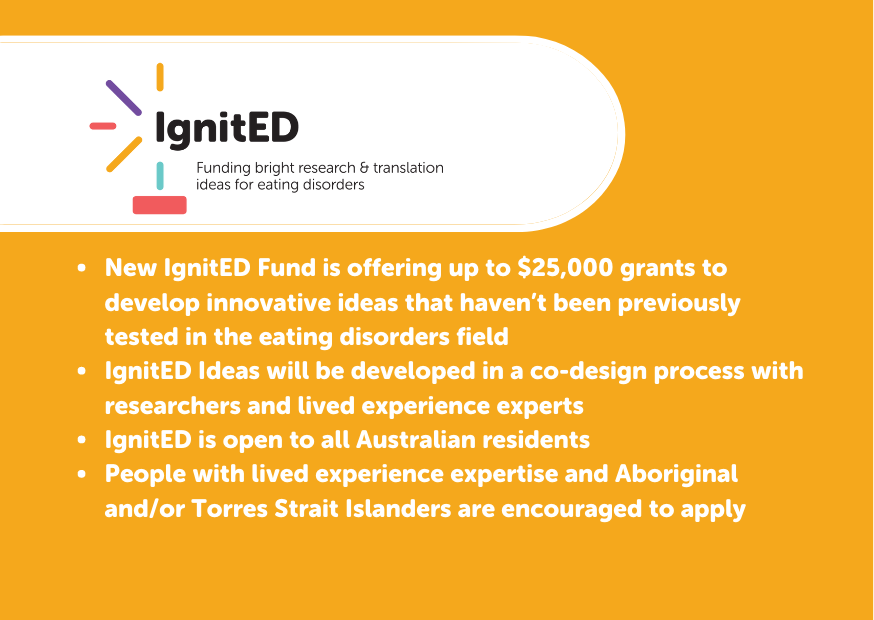
Health
New eating disorders research fund to ignite scientific work
4 May, 2022
The Australian Eating Disorders Research & Translation Centre has launched a fund to unearth bright ideas in the community that have the potential to solve the problem of eating disorders.
Eating disorders are serious, complex mental illnesses with significant physical and mental health impacts, high mortality rates and low rates of detection.
The IgnitED Fund will offer up to $25,000 grants to Australian residents with innovative ideas who want to work in a co-design process with researchers and lived experience experts to bring their idea to life and build new relationships and skills, and to translate research to good practice.
Centre Director, Associate Professor Sarah Maguire says the fund aims to support the generation of innovative ideas and facilitate the creation of novel teams – between researchers, people with lived experience, practitioners and others who are relevant to the proposed project.
“We need to think differently to find better ways to treat the 1 million Australians living with an eating disorder and to prevent their development in the first place.”
“This is an exciting opportunity to develop bold solutions that haven’t been previously tested in the eating disorders field and tap the diversity and wisdom in our communities”
“We hope that the IgnitED Fund will be the starting point for new and important scientific work, that drives better treatments, better supports and better outcomes for people living with an eating disorder, their families and carers,” said Centre Director Sarah Maguire.
NSW Minister for Mental Health Bronnie Taylor says eating disorder research is a priority for the NSW Government.
"The NSW Government is committed to driving innovation in the eating disorders field. I recently had the pleasure of announcing a new $13 million state-wide residential eating disorders treatment centre to be built in Newcastle, the first publicly funded service of its kind in NSW. These vital changes to clinical delivery must be complemented by research breakthroughs in innovation, that's why the NSW Government is sponsoring the IgnitED Fund."

Centre Lived Experience Co-Production Co-Lead Shannon Calvert says the fund ensures that people with lived and living experience are at the core of scientific work.
“The IgnitED Fund is about bringing people together who have diverse strengths and perspectives to support and enable much-needed breakthroughs that help prevent illness and that help people get better”.
Centre Aboriginal and Torres Strait Islander Co-Lead Leilani Darwin says one of the grants is for First Nations Australians, who we believe experience high rates of eating disorders, disordered eating and food insecurity issues.
“The IgnitED Fund facilitates Indigenous innovation and for the first time we are uniquely positioned to elevate the need to better understand this and to build the evidence and best practice for our communities,” said Centre Aboriginal and Torres Strait Islander Co-Lead Leilani Darwin.
The new Australian Eating Disorders Research & Translation Centre is led by InsideOut Institute at the University of Sydney and is supported from the Australian Government under the National Leadership in Mental Health program.
Lead partner in the national Centre, Professor Patrick McGorry from Orygen says eating disorders represent a huge, growing yet overlooked public health issue.
“The nature of these illnesses is poorly understood, treatment has not advanced for decades, and the evidence base is weak. This means that a fundamental rethink – a mini-moonshot – is required. Discovery and innovation are key processes in which we must invest.”
Centre Chairperson Robyn Kruk AO says the Centre has been established to enable Australia’s best researchers to collaborate with practitioners and with lived experience experts to transform how eating disorders are diagnosed and treated.
“The Centre will coordinate a national approach to eating disorder research that focuses on driving innovation, with the goal of improving outcomes for people living with an eating disorder and supporting their loved ones.”